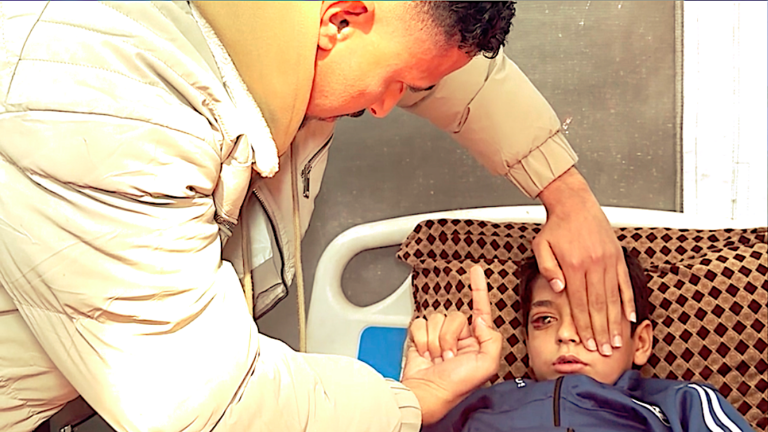
Khartoum/Washington/New York/Beijing: Following intense negotiation over the past 48 hours, the warring Sudanese Armed Forces (SAF) and the Rapid Support Forces (RSF) agreed to implement a nationwide ceasefire starting at midnight on April 24, 2023, to last for 72 hours, Antony J. Blinken, the US Secretary of State, informed today (IST).
During this period, the United States urged the SAF and RSF to immediately and fully uphold the ceasefire. China today said the security situation in Sudan remains complex and challenging. In the capital, Khartoum, 61% of health facilities are closed, and only 16% are operating as normal.
The United Nations Secretary-General António Guterres while in a statement welcomed the safe temporary relocation of about 700 UN, international NGOs and embassy staff and their dependents from Khartoum and other locations to Port Sudan by road, his Special Representative, Volker Perthes, said, “There is no plan or thinking of the UN leaving Sudan”.
Given the fighting, many countries had evacuated their diplomatic staff from Sudan. The United States temporarily suspended operations at the US Embassy and evacuated all its personnel and their dependents under its security responsibility. The United Kingdom’s armed forces evacuated British diplomatic staff and their family members from Sudan. The French foreign ministry announced its decision to close its embassy and evacuate diplomats. India said it was pursuing multiple options as the fate of 3000 Indians hanged in balance in Sudan. Two Indian Air Force C-130J were positioned on standby in Jeddah. And, INS Sumedha reached Port Sudan. China stated that when evacuating its nationals from danger, “our diplomats will always be the last to leave. Meanwhile, the Chinese Foreign Ministry will also take effective action to ensure the safety of our embassy staff”.
Blinken said that to support a durable end to the fighting, the United States will coordinate with regional and international partners, and Sudanese civilian stakeholders, to assist in the creation of a committee to oversee the negotiation, conclusion, and implementation of a permanent cessation of hostilities and humanitarian arrangements in Sudan.
“We will continue to work with the Sudanese parties and our partners toward the shared goal of a return to civilian government in Sudan,” Blinken said.
In its latest update, the United Nations Office for the Coordination of Humanitarian Affairs (OCHA), reported that since fighting erupted on April 15, 2023, at least 427 people were killed and more than 3,700 injured till April 23, 2023.
At least fourteen attacks on healthcare facilities, killing eight people, have been confirmed by the World Health Organization (WHO) since the start of the fighting, and many such facilities were no longer functioning at all in Khartoum and Darfur states. In the capital, Khartoum, 61% of health facilities are closed, and only 16% are operating as normal.There were an estimated 219,000 pregnant women in Khartoum, including 24,000 women expected to give birth in the coming weeks, who face extreme difficulties to seek essential antenatal care, safe delivery services, or postnatal care, according to the United Nations Population Fund
There were reports of looting of humanitarian supplies and warehouses as after 10 days of fighting, shortages of food, water, medicines and fuel became extremely acute, especially in Khartoum and surrounding areas. In Wad Madani—in Aj Jazirah state, which borders Khartoum—prices of basic goods rose by 40 to 100 per cent, with bottled water being sold at double the normal price and fuel prices surging to 40,000 Sudanese Pounds (US$67) on the black market, compared to 2,500 Sudanese pounds ($4.2) previously at fuel stations, according to first-hand information from the Norwegian Refugee Council.
The United Nations Secretariat said the UN will carry out its work with its personnel, both inside and outside Sudan and Guterres said a small number of internationally recruited personnel, including the Special Representative of the Secretary-General, Volker Perthes, will remain in Sudan and will continue to work towards a resolution to the current crisis and returning to the UN-mandated tasks. Later, while speaking at the Security Council, he said the violence risks a catastrophic conflagration within Sudan that could engulf the whole region and beyond. Guterres condemned the indiscriminate bombardment of civilian areas, including healthcare facilities and called on the parties to stop combat operations in densely populated areas and to allow unhindered humanitarian aid operations. “Civilians must be able to access food, water and other essential supplies, and evacuate from combat zones,” he said.
The Secretary-General was in constant contact with the parties to the conflict and had called on them to de-escalate tensions and return to the negotiating table. “The United Nations will continue our efforts with our partners to secure a permanent halt to the fighting as soon as possible,” he said.
Volker Perthes said there was deep concern about the impact of the fighting. “Our humanitarian colleagues are telling us there are acute shortages of food, water, medicines and fuel, and limited access to communications and electricity. The price of essential items — as well as transport — are skyrocketing. There have been additional reports of looting of humanitarian supplies and warehouses,” he informed. The fighting has displaced civilians in the capital, Khartoum, Northern, Blue Nile, North Kordofan, North Darfur, West Darfur and South Darfur states. “In areas where intense fighting has hampered our humanitarian operations, the United Nations is reducing its footprint,” Perthes said.
In recent days, the World Health Organization (WHO) and other UN partners distributed fuel to one of the main hospitals in Khartoum. WHO said it stands ready to deploy additional emergency medical supplies, such as blood bags, trauma and emergency health kits. Humanitarian needs in Sudan were already at record levels before the fighting erupted, with some 15.8 million people — about a third of the population — requiring humanitarian assistance.
– global bihari bureau





